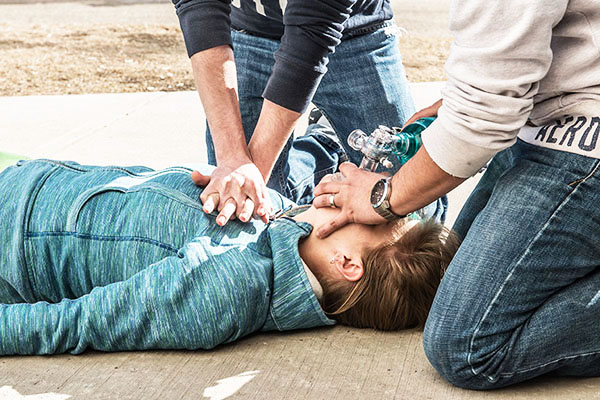Perhaps you have already heard or read about basic life support or BLS and how just about anyone can get trained at it so that he or she could help save lives in times of emergencies. There is something similar to that, and it’s called advanced cardiovascular life support or ACLS.
Just like BLS, ACLS is all about providing medical skills necessitated by someone who just had a cardiac or respiratory arrest, or just about any other cardiopulmonary emergency. And also, just like when planning on becoming BLS-certified, one needs to attend classes and pass certain tests in order to become a qualified ACLS provider.
However, there are a few differences between BLS and ACLS, such as in terms of who can undergo training for it and which medical procedures can be carried out. If you are interested to know some of the basics of ACLS because you want to make a difference, then continue reading.
Who Can Get ACLS Training?
Just about anybody can pay for BLS classes and take exams in order to become certified — it doesn’t matter if you are a nurse, fireman, police officer, lifeguard, daycare teacher or security guard. On the other hand, only those who are members of the healthcare industry can become certified in ACLS, provided that they take classes for it and pass the exams.
So in other words, ACLS training is intended only for those who are previously educated or trained to provide care, and they are medical or paramedical professionals like doctors, nurses and emergency medical technicians or EMTs.
This doesn’t mean, however, that you cannot help save lives when more detailed medical care isn’t available when an emergency strikes because you are not a healthcare provider — you can always train to become BLS certified which also enables you to provide a variety of much-needed procedures during emergencies.
Why It’s for Medical and Paramedical Professionals?
In BLS, the likes of cardiovascular pulmonary resuscitation or CPR, Heimlich maneuver, stabilization of fractures and others are taught at classes. Actually, the very same things are taught at ACLS training, but with the addition of numerous others that only medical and paramedical professionals are allowed to perform or capable of carrying out.
For instance, did you know that someone who is certified at providing ACLS may administer drugs that are critical to the survival of an individual needing medical intervention? Interpreting ECG or EKG readings, defibrillations, intubations and recognition of arrhythmias are some other things taught.
There are so many other skills that medical and paramedical professionals attending ACLS classes can become adept at. Some of them include the integration of BLS and ACLS to put emphasis on the survival of a patient, and how important it is to interact and communicate with a team during an emergency situation or disaster.
How Can One Become ACLS Certified?
The initial step to becoming proficient in providing ACLS is for someone who is a part of the healthcare industry to attend classes that usually last for a couple of days only. There are courses available for people who have never taken ACLS classes before, as well as those who have ACLS cards, but the validity of which has already expired.
After the lectures, he or she should be able to pass the exams. By the way, exams entail practical and written ones — after the completion of the course, the individual should be able to demonstrate his or her proficiency in various ACLS skills, and also answer correctly the minimum passing grade on the written assessment.
Someone who is about to attend ACLS training is expected know various BLS skills, which will be evaluated during the demonstration of ACLS skills.












